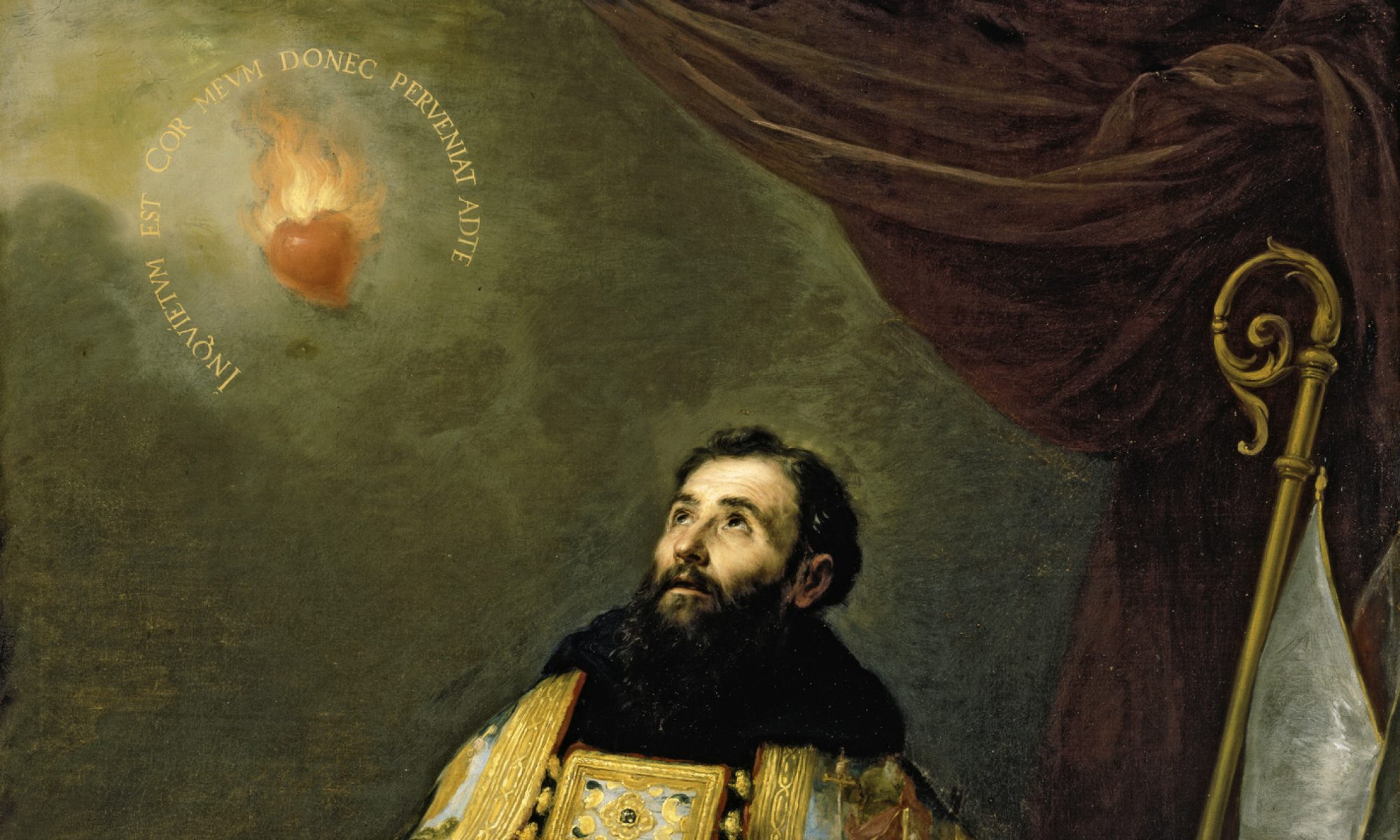Today is the feast of All Saints. We remember these ordinary people, men and women declared officially by the Catholic Church as Saints, who attained glory at the altar of the Lord because of their fidelity to God and their Christian virtues. I believe that there are also so many Saints in heaven, unknown holy people, who are not declared by the Church, yet they are with God in heaven.
I never thought I’d meet real people here on earth, whom I consider living saints because of the way they serve others and love God faithfully. They work diligently, actively among the poor in a quiet manner, with all humility and generosity. There is nothing remarkable about them for they are focused on sincerity of heart as genuine witnesses of God’s compassion, care, and deep love for the people whom they serve.
Today’s gospel from St. Matthew tells us about Jesus’ sermon on the Mount. It conveys to us how to become Saints by following Jesus’ words and examples. This gospel passage is a practical guide to holiness which is attainable, within reach and real, but not expressing who those Saints are. Jesus is giving us principles which are concrete suggestions to action.
In our Nicene Creed, we express our belief about the communion of Saints. Thus, we are not far and remote from them, but united. Through our faith and prayers, we are perfectly in communion with them especially when we ask for their help, for they have this beatific vision granted to them by God to intercede for us. On our part as believers, knowing and meeting living “Saints” in real life, we are encouraged to continue committing to our Faith and the love of God. We must know thru them how to walk in the path to Holiness. It is in the ordinary that we encounter Christ and His saints and are given the grace to be the beatitudes.
Let us now reflect profoundly on some points that are significant to us:
First, the blessings that Jesus has mentioned in the Beatitudes are not material blessings, like winning a lottery or becoming richer. Rather it is about being spiritually rich and successful. In fact, it is a total opposition to all the world offers us. It almost turns all our notions of blessedness upside down.
Second, finding ourselves to be “spiritually poor,” we have nothing but God in our lives. Being poor, we discover God. St. Augustine promoted poverty of spirit and continence of the heart while living in Hippo with his friends and brothers in the community while doing their pastoral duties. Our Father, St. Augustine, says, ‘the love of neighbor was simply another expression of the love of God,” in the realm of spiritual poverty. Being poor, we can share much. In our poverty, we open our hands to help and our hearts to pray to our God who provides.
Third, when we find ourselves mourning, we shall be comforted because in our helplessness and starving for justice, we have nowhere to find true comfort except from our Savior who satisfies us.
Fourth, when we find God’s mercy for our sins, our pains and wounds heal. We receive cleansing of our hearts; therefore, we too experience and see God within us thru a purified heart from all the pains and woundedness. Thus, we can easily offer forgiveness and mercy to others as well. We become peacemakers, ready to dispense that special blessedness we have received. I believe that once God has given us His bountiful grace, His mercy overflows in our hearts. Now, we become true children of God and see Him face to face.
In today’s first reading from the Book of Revelation, St. John has a vision of a multitude of people, impossible to count, “from every nation, race, people, and tongue… These are the ones who have survived the time of great distress.” St. John is reminding us that reaching the promise of salvation has been attached to all kinds of difficulties and challenges in this present world. This is both a message and a warning to us that we will all succumb to suffering and difficulties here on earth; however, there is an end to suffering when we are faithful to Jesus, who sacrificed His own life so that we may live for all eternity.
This is indeed a great promise because all the saints of God are fully enjoying that “Blessedness.” We are also called to see and believe that we can also rejoice and be glad about all God’s elect.
May all the Saints of God, pray for us.
Fr. Arlon, osa
—————————-
Solemnidad de Todos los Santos
- Apocalipsis 7:2-4, 9-14
- Salmos 24:1 bc-2, 3-4ab, 5-6
- 1 Juan 3:1-3
- Mateo 5:1-12a
Hoy es la fiesta de Todos los Santos. Recordamos a estas personas ordinarias, hombres y mujeres declarados oficialmente Santos por la Iglesia Católica, que alcanzaron la gloria en el altar del Señor por su fidelidad a Dios y sus virtudes cristianas. Hay tantos Santos en el cielo, santos que desconocemos, que no están declarados por la Iglesia, pero que están con Dios en el cielo.
Nunca pensé que encontraría personas reales aquí en la tierra, a quienes considero santos vivientes por la forma en que sirven a los demás y aman fielmente a Dios. Trabajan diligente y activamente entre los pobres de manera silenciosa, con toda humildad y generosidad. No hay nada extraordinario en ellos porque se centran en la sinceridad de corazón como testigos genuinos de la compasión, el cuidado y el profundo amor de Dios por las personas a quienes sirven.
El evangelio de hoy de San Mateo nos habla del sermón de la montaña de Jesús. Nos transmite cómo llegar a ser santos siguiendo las palabras y el ejemplo de Jesús. Este pasaje del evangelio es una guía práctica hacia la santidad que es alcanzable, asequible y real, pero que no expresa quiénes son esos santos. Jesús nos está dando principios que son sugerencias concretas para la acción.
En nuestro Credo Niceno expresamos nuestra creencia sobre la comunión de los santos. Por lo tanto, no estamos lejos ni alejados de ellos sino unidos. A través de nuestra fe y oración, estamos en perfecta comunión con ellos, especialmente cuando les pedimos ayuda, porque tienen esta visión beatífica que Dios les concedió para interceder por nosotros. De nuestra parte como creyentes, al conocer y encontrarnos con “Santos” vivos en la vida real, nos animamos a seguir comprometiéndonos con nuestra Fe y el amor de Dios. Debemos saber a través de ellos caminar por el camino de la Santidad. Es en lo ordinario donde encontramos a Cristo y a sus santos y se nos da la gracia de ser las bienaventuranzas.
Reflexionemos ahora profundamente sobre algunos puntos que para nosotros son significativos:
Primero, las bendiciones que Jesús mencionó en las Bienaventuranzas no son bendiciones materiales, como ganar la lotería o hacerse rico. Más bien se trata de ser espiritualmente rico y exitoso. Es lo contrario de todo lo que el mundo nos ofrece, altera nuestra noción de bienaventuranza.
En segundo lugar, al considerarnos “espiritualmente pobres”, no tenemos nada más que a Dios en nuestras vidas, que es todo lo que necesitamos. Siendo pobres descubrimos a Dios. San Agustín promovió la pobreza de espíritu y la continencia del corazón mientras vivía en Hipona con sus amigos y hermanos de la comunidad mientras cumplían sus deberes pastorales. Nuestro Padre San Agustín dice: “El amor al prójimo es simplemente otra expresión del amor de Dios”, en el ámbito de la pobreza espiritual. Siendo pobres, podemos compartir mucho. En nuestra pobreza, abrimos nuestras manos para ayudar. y nuestro corazón para orar a nuestro Dios que provee.
En tercer lugar, cuando nos encontremos de luto, seremos consolados porque en nuestra impotencia y hambre de justicia, no tenemos dónde encontrar verdadero consuelo excepto en nuestro Salvador, que nos satisface.
Cuarto, cuando encontramos la misericordia de Dios por nuestros pecados, nuestros dolores y heridas sanan. Recibimos la limpieza de nuestro corazón; por lo tanto, nosotros también experimentamos y vemos a Dios dentro de nosotros a través de un corazón purificado de todos los dolores y heridas. Por lo tanto, también podemos ofrecer fácilmente perdón y misericordia a los demás. Nos convertimos en pacificadores, listos para dispensar esa bendición especial que hemos recibido. Creo que una vez que Dios nos ha dado su abundante gracia, su misericordia se desborda en nuestros corazones. Ahora nos convertimos en verdaderos hijos de Dios y lo vemos cara a cara.
En la primera lectura de hoy del Libro del Apocalipsis, San Juan tiene la visión de una multitud de personas, imposible de contar, “de toda nación, raza, pueblo y lengua… Estos son los que han sobrevivido al tiempo de gran angustia.” San Juan nos recuerda que alcanzar la promesa de la salvación ha estado ligado a todo tipo de dificultades y desafíos en este mundo actual. Este es a la vez un mensaje y una advertencia para nosotros de que todos sucumbiremos al sufrimiento y las dificultades aquí en la tierra, sin embargo, el sufrimiento tiene un fin cuando somos fieles a Jesús, quien sacrificó su propia vida para que podamos vivir por toda la eternidad.
Esta es en verdad, una gran promesa porque todos los santos de Dios están disfrutando plenamente de esa “Bienaventuranza”. También estamos llamados a ver y creer que también podemos regocijarnos y alegrarnos por todos los elegidos de Dios.
Pidamos a todos los Santos de Dios, que oren por nosotros.
P. Arlón, osa

